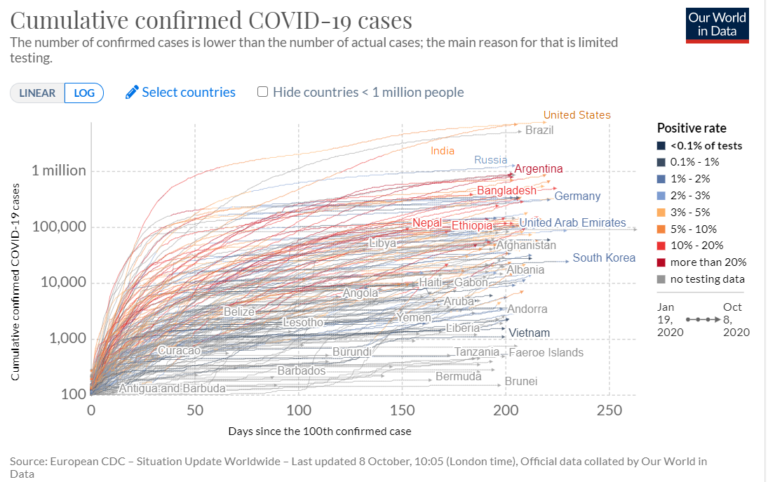Saying 2019 and 2020 are pivotal is no overstatement for us in Hong Kong. Our economy contracted 9% year on year in the second quarter of 2020. And that was just a start. Sometimes we wonder how deep the Hong Kong citizens’ emotional resilience can run; how much the psyche of this city can withstand the force of schismatic changes; and to what extent the social fabric can still hold without yielding to the historic upheavals to this borrowed place of borrowed time. Covid-19 could be the emblem of an inflexion point in our history.

What happened in Wuhan in January and February 2020 and later in Italy set the stage for the rest of the world for the subsequent months. Our business is cross-border e-commerce trade. We started tracking the development of Coronavirus in China when public data became available, sensing that it could wreak havoc to our operations.
China e-commerce sellers supplies account for anywhere between 20% and 30% of global e-commerce retail offerings in sale value. But China’s supply chains were basically shut down in February while the world was watching afar. The lockdown of the nation for a month and half was unimaginable in scale and was testing the governance of any political systems and ideologies. We had our China staff grounded for two months in small towns and villages in Hebei – the province of the Coronavirus epicentre. But technology and stoic work ethics brought back 70% of our productivity across five locations including Hong Kong and the US.
By late-March, China was returning to 70-80% normalcy in terms of production capacity. Over 4,500 people in China had died by then, and back in late January we thought over 1,000 deaths would have been an unthinkable calamity. Because of the scarred memory of SARS, Hong Kong people have aggressively social-distanced and face-masked themselves right from the start. The city was turned muted in every sense of the word compared to 2019. And up until mid-March, our business has been holding up better than expected as the supply chain of China recovered from the month-long disruption rather uneventfully.
But March was also when the Coronavirus tsunami hit the world. Heart-breaking imageries were live-streaming from Italy. On March 11, the WHO declared Covid-19 a pandemic. When the pandemic became “official”, the world was instantly thrusted into another dimension. E-commerce platforms like Amazon and eBay drastically upended their policies in terms of product offerings and delivery performance requirement. Air freight costs skyrocketed within weeks as 90% passenger flight capacity was grounded in the following months. The entire global e-commerce logistic network was half paralysed. Covid-19 just short-circuited globalisation. The worst business case we projected would have meant millions of dollars of loss in the second and even third quarter of this year.
We tried to compute the best forecast of the Covid-19 development and its business impact. We focused on getting supplies ready and finding available logistic solutions to deliver orders that were still coming through. Weekly or monthly reporting turned into daily morning dashboards. Decision-making cycles were compressed into hours. Home-use products were doing well. But fast fashion was down by 40%, while yoga clothing and intimate wear were popular. One of our best-selling items is strings for making home-made face masks. There were China sellers making millions from exporting surgical and N95 masks even under tight export and import control.
By early summer when the first wave of Covid-19 subsided, e-commerce turned out to be a winner in the pandemic. Sale increased over 40% year on year. Internet technology keeps part of the economy and our daily life functional. The world was somehow rewired and reconnected. Amazon’s share price has gone up 70% year to date in 2020.
This is only Chapter 1 of Covid-19. Covid-19 is an emblem – emblematic of all the socio- and geopolitical disruptive changes super-charged by the pandemic. As the Economist concluded, “The pandemic will leave economies less globalized, more digitized and less equal.” And this could further feed into “globalized indifference” which worries the Pope. But as history pivots, we can only choose hope over despair and carry on…